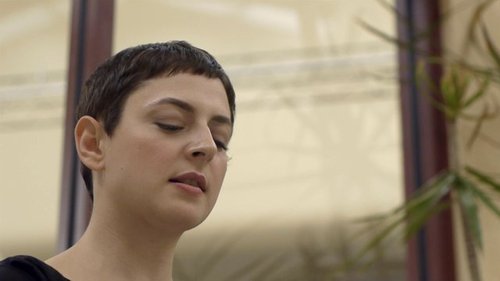
When reading Michiko Kakutani’s review of Jenny Offill’s novel, Department of Speculation (1/29/2014), I was disappointed to find the amount of speculation Kakutani engaged in on behalf of the female narrator (and, seemingly by extension, the author) that reads as mired in a stagnant, boring gender bias in contemporary publishing.
Kakutani compares Offill’s new work to three great American novels of fragmentation published in the 1970s—Renata Adler’s Speedboat, Elizabeth Hardwick’s Sleepless Nights, and Joan Didion’s Play it as it Lays—although Kakutani strangely doesn’t situate Didion’s gorgeous work of Hollywood disintegration with Hardwick and Adler, instead framing the second half of Offill’s novel (with its switch to the third-person narrator) as taking a better, wittier turn from Didion buzzkill territory into something more like Nora Ephron’s Heartburn.
With all deference to the witty oeuvre of Nora Ephron, a.) Didion’s work is actually wickedly funny, but in a chilly, nihilist vein and b.) remind me, why do works of literature written by women writers have to always be funny and upbeat? Do their heroines have to be likable and entertaining as well? Kakutani similarly takes issue with Offill’s first-person philosophical narrator being too “negative” in the novel’s first half, with its meditations on the struggles of everyday existence, calling her a “Debbie Downer.” Let me quote this in full:
“At the beginning of this carefully carpentered novel, such pronouncements can make the narrator (i.e., the wife) seem like a cartoon of a high-strung, intellectually pretentious, narcissistic woman — at least this is how her self-presentation comes off. Her constant quoting of writers and thinkers like Simone Weil, Hesiod, Keats, Stefan Zweig and Wittgenstein feels like the hectic name-dropping tweets of an eager-to-impress literary student, and her proclivity for dwelling on the negative can’t help but summon memories of Debbie Downer on ‘Saturday Night Live.’”
So, when Rainer Maria Rilke wrote his existential masterpiece of the city, The Notebooks of Malte Laurids Brigge, a work which Kakutani references, in which his Danish nobleman wanders the streets of Paris, suffocated by the masses and infected by images of death, is he too a “Debbie Downer”? Are Franz Kafka’s various K personas? Fernando Pessoa’s disquieted hermit? Any of Thomas Bernhard’s hateful, acidic narrators? For the great works of modern literature can often dwell on not only the ecstasies of human existence but also the negative, that is, suffering, love, death, the whole spectrum.
When Kakutani is irritated by the wife-narrator seeming like a stereotype of a “high-strung, intellectual, pretentious, narcissistic woman” (note: not a man who bears these qualities), this is not a smart assessment of Offill’s work as a work of literature, but a judgment of a female character as being unlikable, attempting to know too much, attempting to think too much, attempting to feel too much, and the only thing that this reveals is Kakutani’s internalized bias against such women, and by extension, such writers (and what’s this about how her “self-presentation comes off,” is this a review of a work of literature, or language from a self-help seminar?).
Characters in works of literature, especially and including female characters written by female authors, should be above all else interesting; they do not and should not be exemplary and good women and workers. Camus wrote that if one wanted to write philosophy, one should write novels, and in the contemporary novel, a writer should also be allowed to engage in the world and history of ideas. (Perhaps with this abundance of literary references Kakutani would review this letter as also being pretentious and overly intellectual).
It is interesting that Kakutani compares the literary form of the fragment to the contemporary tweet, but she seems to have meant it disparagingly. Perhaps she is not aware of the tradition (of fragments) that Offill continues (Camus’ or Sontag’s notebooks, the novels of David Markson or Carole Maso, Maggie Nelson’s Bluets). Kakutani seems unaware that the act of engaging passionately with the mind’s library has yielded some of our most brilliant works of literature.
Kate Zambreno
Brooklyn, NY




